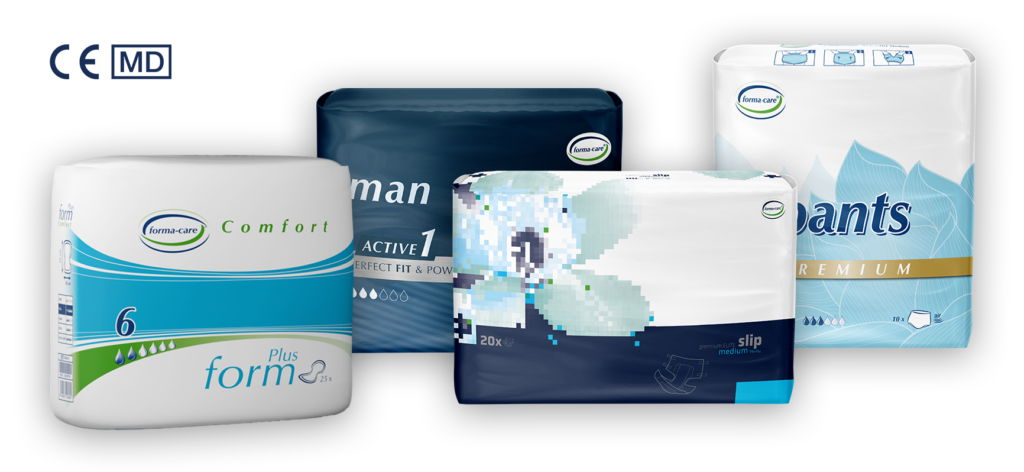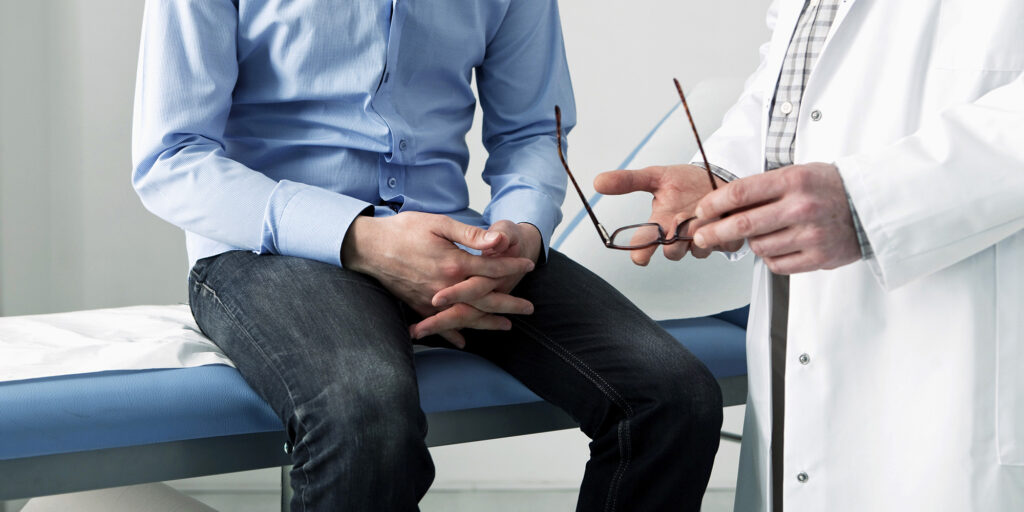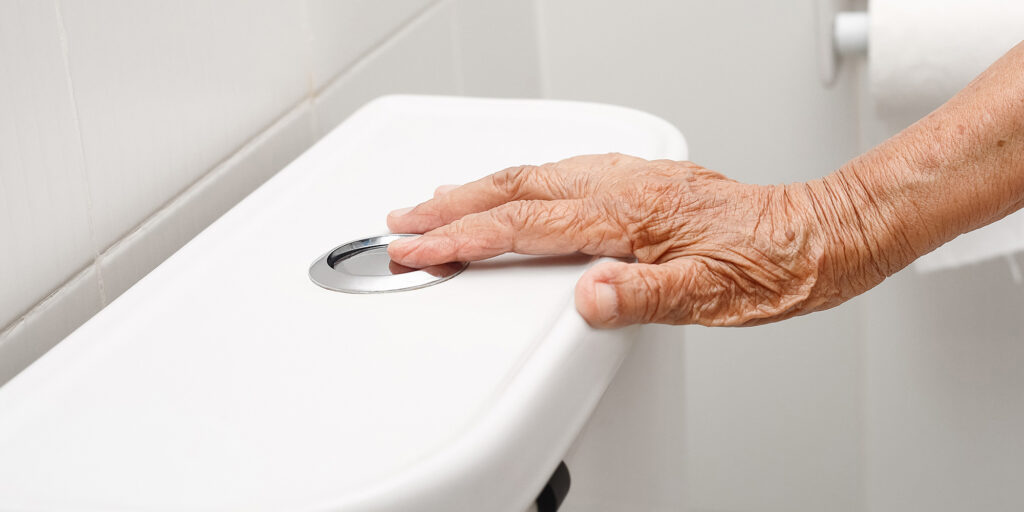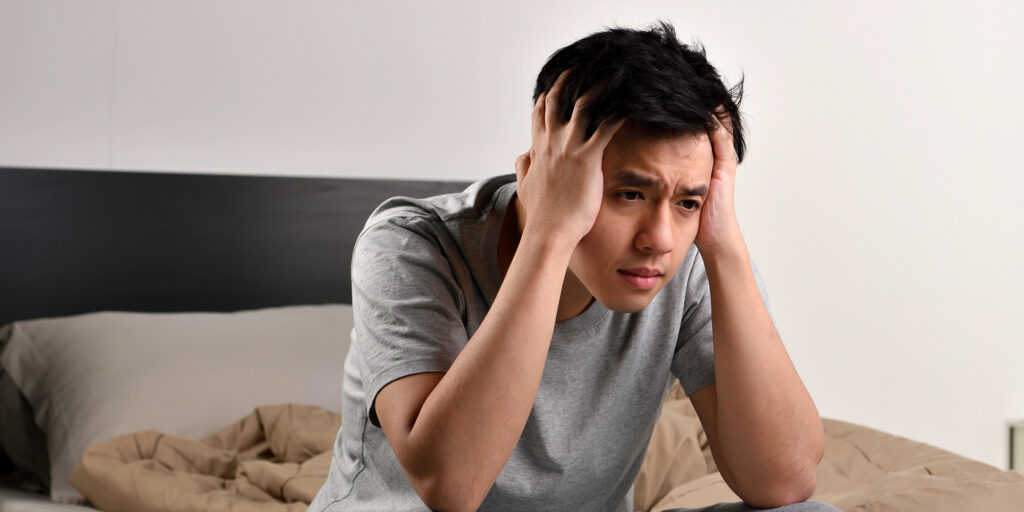For men with incontinence
Increased urge to urinate and involuntary loss of urine - a common problem even in middle age.
Possible at any age
No matter what stage of life you are in, incontinence can affect anyone and is not exclusively an age-related issue. Younger men can be just as affected by bladder weakness as senior citizens.
In fact, incontinence affects one in eight men, which makes it clear that you are not alone in your challenges. Here you will find all the information you need to better understand what incontinence is, the different forms it can take and the symptoms you may experience.
We also offer insights into the various treatment options so that you can find the right solution for you. Our aim is to help you deal with bladder weakness and improve your quality of life.
Incontinence in men
by age
General information about incontinence

forma-care incontinence products
for men
From incontinence slips to incontinence pads and incontinence pull up pants, men will find the right solution for their individual needs. Rely on the quality and experience of forma-care to stay active and mobile even with bladder weakness.
Frequently asked questions
For men, forma-care offers specific incontinence products that are tailored to their individual needs. These have been specially adapted to the male anatomy.
Compared to products for women, incontinence products for men are characterised by various features. These usually include a special fit that takes the male physique into account as well as special protection in the genital area.
Incontinence does not only affect older people. Whilst it is more common in older adults, it can affect people of any age. The causes can be varied, including injury, surgery, neurological conditions, certain medications and even genetic factors. It is important to understand that incontinence is a medical problem that can occur regardless of age, and that there are effective solutions and treatment options available, regardless of age group.
- Choose the right product: Opt for incontinence products that have been specially developed for men and offer a slim fit.
- Adjust the size: Make sure you choose the right size for your incontinence products. Products that are too small can be uncomfortable and show under tight clothing, while products that are too large may not offer sufficient protection.
- Use small shaped pads: If you have mild incontinence, small shaped pads can be a discreet option. These are less noticeable and still offer sufficient protection.
- Wear tight underwear: Tight-fitting underwear can help to keep incontinence products in place and prevent them from slipping under tight clothing.
- Choose dark-coloured clothing: Dark colours and patterns can help to conceal any bulges or stains caused by incontinence products, especially during sport.
- Train your pelvic floor: A strong pelvic floor can help to improve bladder control and reduce the risk of leakage.
By following these tips and trying out different things, you can wear incontinence products discreetly and feel confident and self-assured at the same time.
Yes, with some forms of incontinence it is possible to leak urine during sexual intercourse. This can occur in particular with stress incontinence, where physical activities such as coughing, sneezing or even the pressure of sexual intercourse can lead to involuntary loss of urine. It is important to discuss this with a doctor in order to find suitable treatment options and support your sex life in the best possible way.
Sanitary towels are only intended to absorb menstrual bleeding. This comes out more slowly and in smaller quantities than urine. In addition, blood is thicker than urine. Conventional panty liners are therefore unable to absorb the amount of urine and are unsuitable for bladder weakness. Incontinence products, on the other hand, have a special absorbent core that absorbs urine quickly and reliably, traps it and prevents odour formation.
These include, for example, pelvic floor exercises, which can strengthen the muscles and support bladder control. In addition, behavioural changes such as reducing caffeinated drinks and avoiding excessive alcohol consumption can help to reduce symptoms.
Useful links
Deutsche Kontinenz Gesellschaft e.V. Information on the subject of incontinence with many addresses of self-help groups and advice centres.
Inkontinenz Selbsthilfe e.V. is a nationwide self-help organisation that was founded in 2006 by people who are themselves affected by incontinence or are relatives of those affected. The aim of the association is to improve the living conditions of incontinence sufferers and their relatives.








